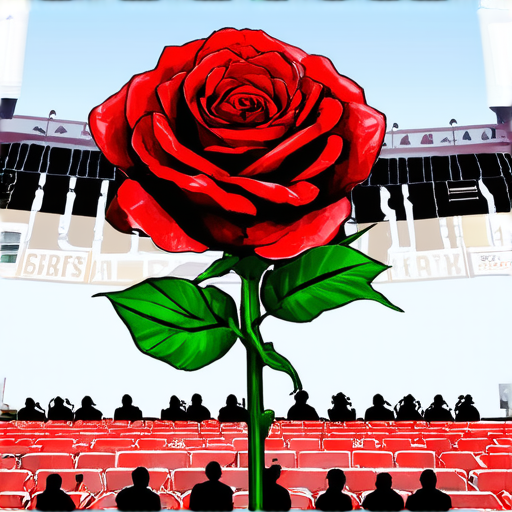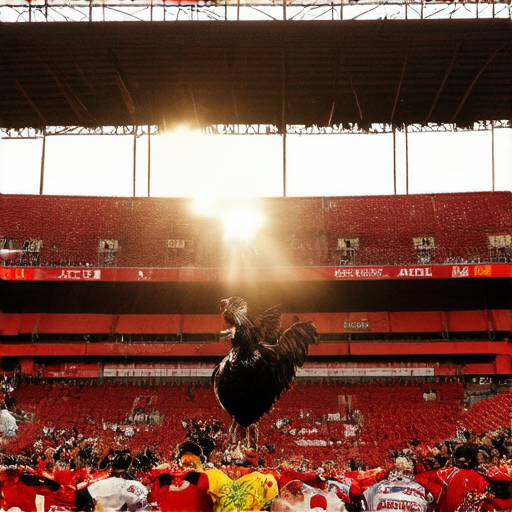As one of the most passionate and dedicated fan bases in football, Liverpool FC enthusiasts embody a unique blend of faith, passion, and community that sets them apart from other supporters. But what do they call these devoted followers? Is LFC a Catholic club, and if so, how does its strong Catholic heritage shape the team’s culture and values? From famous celebrity endorsements to iconic partnerships and sponsorships, we delve into the world of LFC fan perspectives, exploring the heart and soul of the Reds.
Through a series of insightful interviews, expert analysis, and behind-the-scenes stories, we uncover the secrets behind the Reds’ enduring success, revealing the core values and ethos that drive the team forward. We examine the significance of LFC’s historical successes, the balance between preserving tradition and innovating forward, and the role of fan engagement and community building in shaping the club’s identity. By gaining a deeper understanding of the LFC fan experience, we shed light on the true essence of being a Red, and what it means to be part of this vibrant and dedicated community.

What Do They Call Liverpool Fans?
Liverpool FC supporters have several nicknames, each reflecting their unique identity and connection to the club. Here are some of the most common terms used to describe Liverpool fans:
- Kopites: As mentioned earlier, this term originated from the fans who once stood on the famous Kop stand at Anfield Stadium.
- Red Men: This nickname refers to the distinctive red color of Liverpool’s home kit and the passion of the fans.
- LFC Fans: A straightforward term used to identify supporters of the club.
- Koppies: Similar to Kopites, this term emphasizes the connection to the iconic Kop stand.
- Scouse: Although not exclusively used to describe Liverpool fans, this term has become synonymous with the city’s culture and identity.
The formation of AFC Liverpool in 2008 highlights the dedication and commitment of the fan base, as well as the challenges faced by many supporters in accessing live Premier League football due to high ticket prices. Despite these obstacles, the spirit of the Kop remains strong, and the various nicknames continue to unite Liverpool fans worldwide.
Is LFC a Catholic Club?
Liverpool Football Club (LFC) has long been associated with the city of Liverpool, which has a rich history of Catholicism. However, the question remains whether LFC itself is a Catholic club. To answer this, let’s delve into the history and background of the club.
The Origins of Liverpool Football Club
Liverpool Football Club was founded in 1892 after a dispute between the Everton committee and John Houlding, the club’s president and owner of the land at Anfield. The dispute led to the formation of a new club, which would eventually become Liverpool FC.
Catholicism in Liverpool
Liverpool has a significant Catholic population, with many Catholics settling in the city during the 19th century due to industrialization and urbanization. The city’s Catholic heritage is reflected in its architecture, culture, and traditions.
Association with Catholicism
While there is no direct evidence to suggest that LFC was founded specifically as a Catholic club, the club’s early years were closely tied to the Catholic community in Liverpool. Many of the club’s earliest players and officials were Catholic, and the club’s stadium, Anfield, was built near the Catholic Cathedral of Our Lady and St Nicholas.
Modern-Day Implications
Despite the lack of explicit ties to Catholicism, LFC continues to maintain strong connections with the local Catholic community. The club’s charitable foundation supports various initiatives, including those focused on education, healthcare, and social welfare, which benefit the broader Catholic community.
Conclusion
In conclusion, while LFC may not have been founded as a Catholic club per se, its history and associations with the Catholic community in Liverpool cannot be ignored. The club’s continued involvement with the local Catholic community underscores its commitment to serving the greater good and promoting social responsibility.
Who Supports Liverpool?
Liverpool Football Club has garnered support from numerous celebrities across various fields. These individuals have publicly expressed their admiration for the team, often attending matches and participating in charity events.
- Music Industry:
- Caroline Wozniacki, a professional tennis player, is known to be a massive Liverpool fan.
- Lana Del Rey, the renowned singer-songwriter, frequently wears Liverpool jerseys during her performances.
- The Spice Girls member, Melanie C, has been spotted cheering for Liverpool at matches.
- Entertainment Industry:
- Sheamus, a WWE wrestler, proudly sports Liverpool merchandise.
- Kim Cattrall, an actress known for her role in Sex and the City, has shown her support for the team.
- Comedy Industry:
- John Bishop, a British comedian, is an avid Liverpool supporter and has attended several matches.
- Ricky Tomlinson, another well-known comedian, has been seen wearing Liverpool jerseys.
These celebrities demonstrate the widespread appeal of Liverpool Football Club, transcending geographical boundaries and cultural backgrounds. Their enthusiasm serves as a testament to the club’s enduring legacy and global fan base.
The Core Values of Liverpool Football Club
The core values of Liverpool Football Club are deeply rooted in its rich history and culture, shaping the club’s identity and guiding its actions. These values are reflected in the club’s mission statement, which emphasizes the importance of teamwork, discipline, and respect for others.
- Teamwork and Unity: The success of Liverpool FC is built upon the collective efforts of its players, staff, and fans. The team works together towards a common goal, fostering a sense of unity and camaraderie that transcends individual achievements.
- Discipline and Hard Work: The club’s commitment to hard work and dedication is evident in its training methods and player development programs. Players are expected to maintain high standards of fitness, nutrition, and mental preparation, demonstrating the value placed on discipline and self-improvement.
- Respect and Integrity: Liverpool FC promotes a culture of respect for opponents, officials, and fellow fans. The club expects its players and staff to conduct themselves with integrity, upholding the highest standards of sportsmanship and ethics.
- Innovation and Adaptability: The club recognizes the importance of innovation and adaptability in staying ahead of the competition. Liverpool FC invests heavily in research and development, seeking new ways to improve its products and services while maintaining its core values.
- Community Engagement and Social Responsibility: As a global brand, Liverpool FC has a responsibility to give back to its community and promote social causes. The club engages in various initiatives, supporting local charities, promoting education, and advocating for human rights.
These core values have been instrumental in shaping Liverpool FC into one of the most successful and beloved football clubs in the world. By embracing these principles, the club continues to build a strong foundation for future generations of players, staff, and fans.
Liverpool FC Ethos: Unpacking the Spirit of the Reds
Liverpool FC ethos is deeply rooted in the club’s history, values, and the unwavering dedication of its fans. At its core, the ethos embodies the principles of unity, resilience, and community, which have been instrumental in shaping the club’s identity and success.
Key Components of Liverpool FC Ethos
- Unity and Camaraderie: The Liverpool FC ethos places great emphasis on the importance of unity among players, staff, and supporters. This sense of belonging fosters a strong team spirit, driving individuals to work towards a common goal.
- Resilience and Perseverance: The Reds have faced numerous challenges throughout their history, from financial struggles to on-field setbacks. However, this ethos has enabled them to bounce back stronger, demonstrating an unwavering commitment to overcoming adversity.
- Community Involvement: Liverpool FC has a long-standing tradition of engaging with local communities, supporting charitable causes, and promoting social responsibility. This commitment to giving back reflects the club’s values and reinforces its connection with the city of Liverpool.
The Role of Iconic Songs and Mottoes
The iconic song “You’ll Never Walk Alone” plays a significant role in defining Liverpool FC ethos. Written by Richard Rodgers and Oscar Hammerstein II, the song was originally composed for the musical Carousel and became closely associated with the club after Gerry Marsden recorded a version titled “You’ll Never Walk Alone” in 1963. The song’s message of hope, solidarity, and perseverance resonates deeply with the Liverpool FC community, serving as a powerful symbol of the club’s ethos.
Embodying the Liverpool FC Ethos
To truly embody the Liverpool FC ethos, one must demonstrate a deep understanding of the club’s values and a willingness to live by them. This involves:
* Supporting the Club Unconditionally: Show unwavering support for the team, both on and off the pitch, and engage with fellow fans to create a sense of community.
* Embracing Resilience and Perseverance: Develop a growth mindset, learning from setbacks and using them as opportunities for growth and development.
* Getting Involved in Local Community Initiatives: Participate in charity events, volunteer with local organizations, and contribute to initiatives that promote social responsibility and community engagement.
By embracing these principles, individuals can become part of the Liverpool FC ethos, contributing to the club’s rich history and cementing its place as one of the most beloved and respected teams in the world of football.
Liverpool’s Cultural Identity
Liverpool is renowned for its rich cultural heritage, which encompasses various aspects of the city’s history, art, literature, and traditions. At its core, Liverpool’s cultural identity is shaped by its unique blend of influences, including its maritime past, Celtic roots, and British heritage.
Maritime History and Industrial Heritage
The city’s strategic location on the River Mersey has played a significant role in shaping its cultural identity. Liverpool’s maritime history, marked by its status as a major port during the 18th and 19th centuries, has left an indelible mark on the city’s architecture, cuisine, and traditions. The city’s industrial heritage, particularly its textile and shipbuilding industries, has contributed to its reputation as a hardworking and resourceful community.
Celtic Roots and British Influence
Liverpool’s Celtic roots, dating back to the Roman era, have had a lasting impact on the city’s language, customs, and traditions. The city’s strong Scottish and Irish connections are reflected in its dialect, music, and folklore. Meanwhile, Liverpool’s British heritage, evident in its architecture, politics, and social norms, has helped shape the city’s identity as a quintessential English city.
Music and Nightlife
Liverpool’s vibrant music scene, which spawned the Beatles and other influential bands, continues to play a significant role in shaping the city’s cultural identity. The city’s nightlife, characterized by its lively bars, clubs, and live music venues, attracts visitors from around the world. From the Cavern Club to the Philharmonic Hall, Liverpool’s music and arts scene offer a diverse range of experiences that reflect the city’s eclectic spirit.
Architecture and Urban Design
Liverpool’s stunning architecture, featuring iconic landmarks such as St. George’s Hall, the Royal Liver Building, and the Albert Dock, reflects the city’s rich cultural heritage. The city’s urban design, influenced by its maritime past and industrial heritage, features narrow streets, canals, and warehouses that have been transformed into trendy bars, restaurants, and shops.
The People of Liverpool
Liverpudlians, affectionately known as Scousers, are famous for their warm hospitality, dry wit, and love of laughter. Their distinct sense of style, characterized by bold fashion statements and a passion for football, is an integral part of the city’s cultural identity. With their strong sense of community and resilience, Scousers have earned a reputation as one of the friendliest and most welcoming cities in the UK.
Conclusion
Liverpool’s cultural identity is a complex tapestry woven from its rich history, artistic expression, and traditions. From its maritime past to its modern-day music scene, the city’s cultural landscape is characterized by its diversity, creativity, and warmth. As a city that proudly wears its heart on its sleeve, Liverpool’s cultural identity is a true reflection of its people and their unwavering spirit.

0 Comments